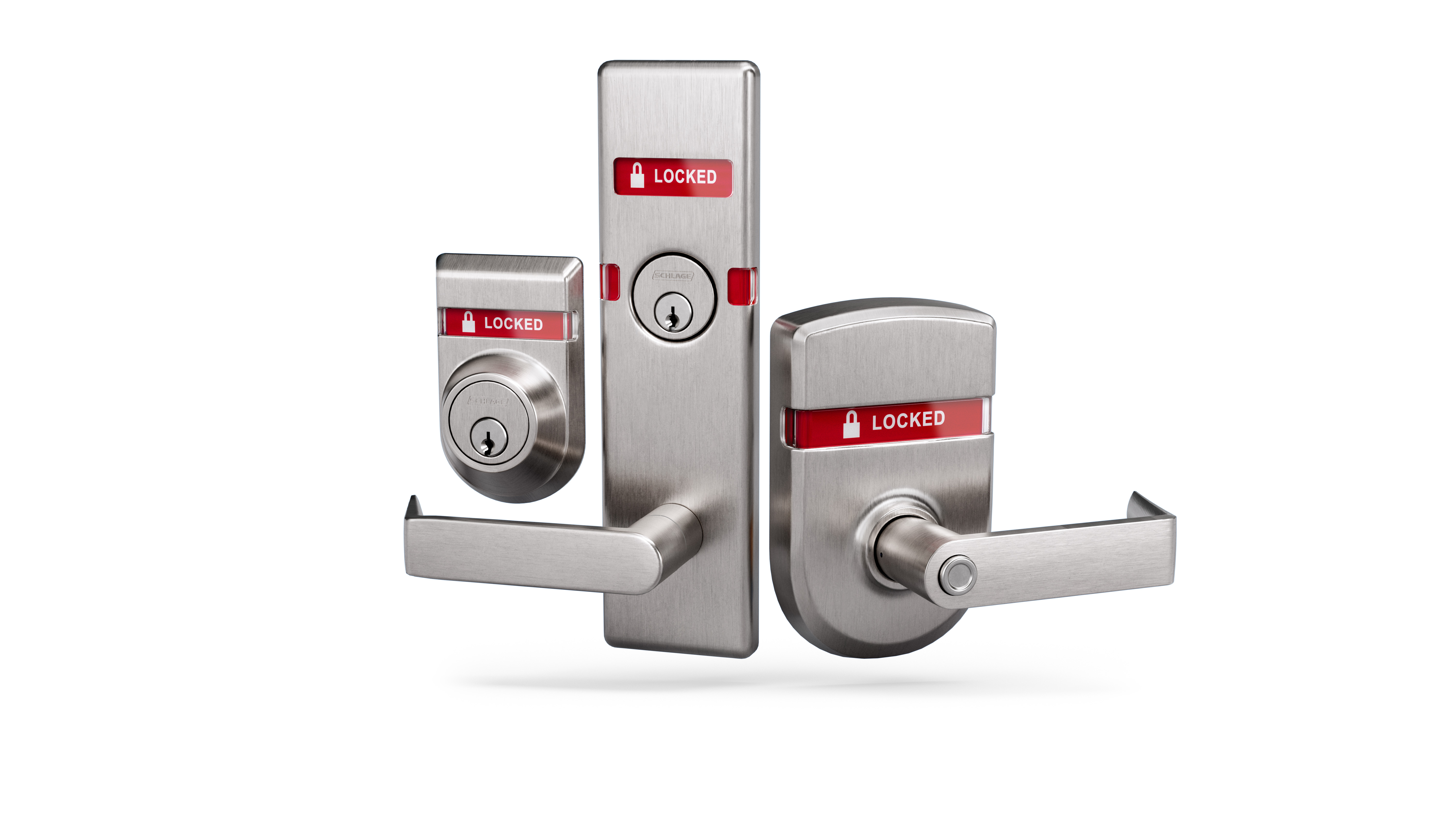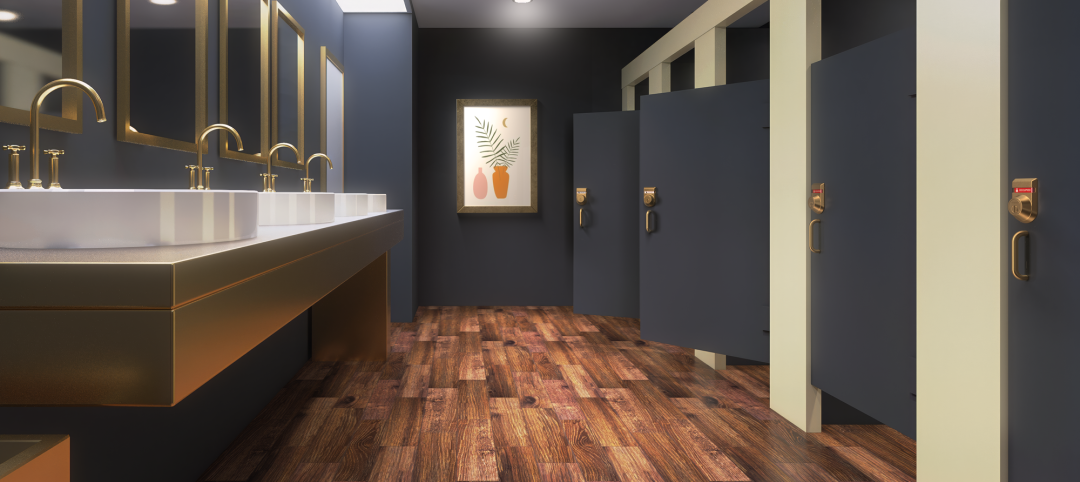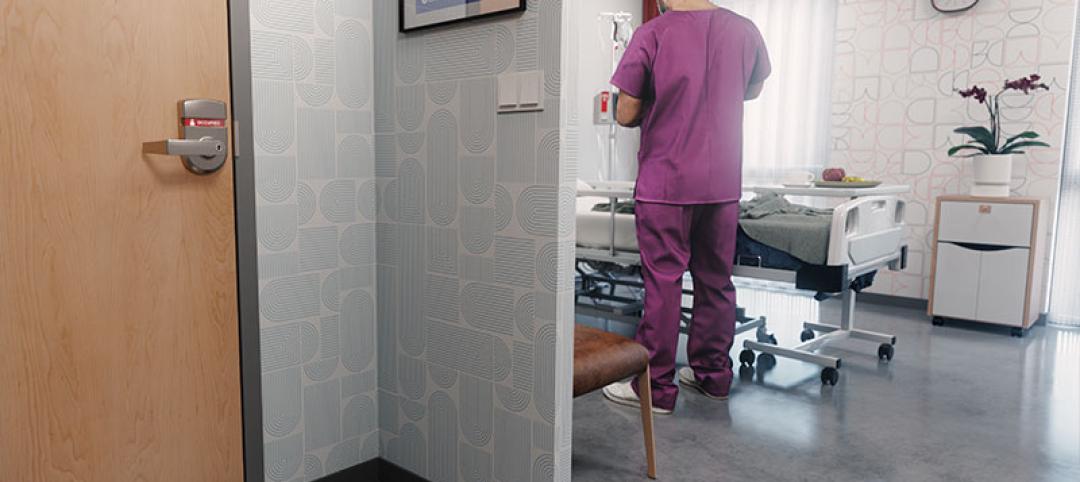In health care settings, the use of visual indication trims on the door lock largely supports privacy for both patients and providers. They do this by displaying the room’s occupied or vacant status, sidelining the need to test a handle or knock to check if anyone is inside a room. As such, they can support privacy goals for single-occupancy restrooms, respite spaces, lactation rooms and on-call rooms among other applications.
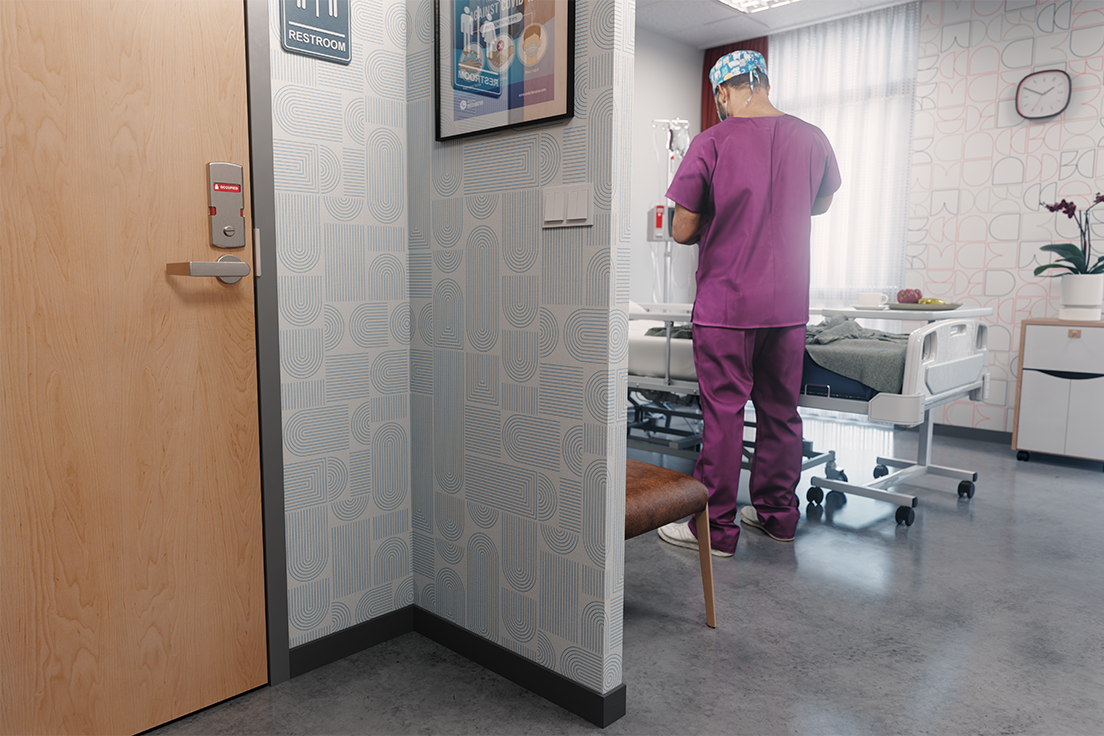
When visual indication trims have large windows and unmistakable messaging, they can more effectively support occupant privacy. To this end, options from Schlage have the largest windows currently on the market for their respective lock types. They also have patented 180-degree visibility so a door’s status can be seen from nearly any angle within view of the door. These award-winning locks also use red and white messaging to be more easily read by those with colorblindness.
That said, visual indication trims can provide value beyond privacy within health care settings. They can also contribute to medical safety in radiology and other potentially sensitive areas as well.
Locks with visual indication trims can help reduce accidental exposure to health hazards
Throughout a health care facility, there may be several areas with equipment or supplies that can be hazardous. For example, in radiology labs, exposure to radiation from x-rays and other equipment can increase the risk of developing cancer and cause other physical ailments, according to the American Cancer Society. To mitigate exposure, building codes require radiology departments to line walls, doors and door hardware with lead. Even with these precautions, opening a door while a machine is in use may expose an occupant to x-rays, so locking the door leading into these spaces can be a crucial safety measure.
Visual indication trims on locks that can support the addition of lead lining add another layer of protection. For single-sided indication options, this type of locking hardware can display a door’s status to show when a radiology lab is occupied. In addition, when visual indication trims are dual-sided, they can also help providers ensure the door is locked prior to initiating any equipment. This can give additional peace of mind that precautions have been taken to limit accidental exposure to potentially hazardous materials and radiation.
The ability to provide peace of mind to both those inside and outside of radiology labs or other therapy rooms can improve the safety of a facility. Like other openings within the built environment, it is also important that any specified locking hardware has the durability to withstand the wear and tear typical of these applications.
Visual indication trims certified to Grade 1 standards support building functionality
Whether they are used to improve the level of safety within a medical center or to offer a higher degree of patient privacy, visual indication trims can be an important component in new projects and renovations alike. It is also crucial for door hardware to be able to withstand institutional use within a medical setting.
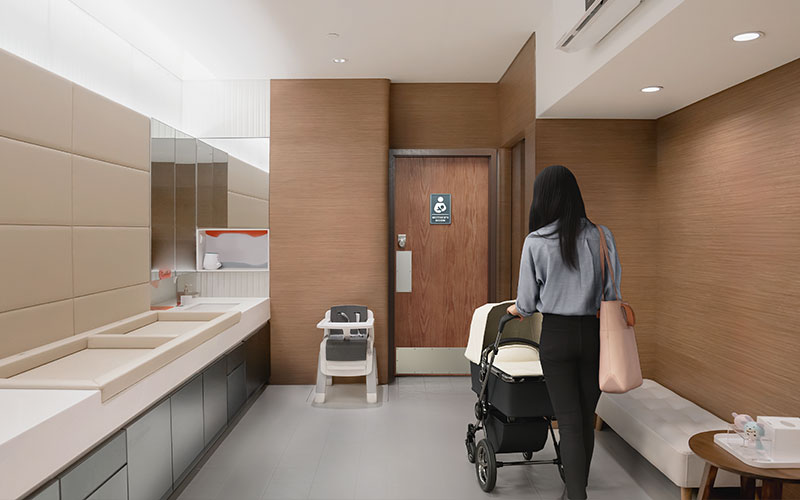
Because they are certified to Grade 1 standards, these locks with visual indication trims offer the reliability and durability needed to withstand the demands of both patient and provider areas. As such, they can help facilitate efficient and consistent operation and reduce maintenance and replacement costs over their total lifecycle. Visual indication trims from Schlage provide peace of mind in the present and the future.
More from Author
Melany Whalin, Allegion US | Aug 6, 2024
Planning for Privacy and Accessibility in Public Restroom Design
Visual indication trims can help restroom designs improve privacy, peace of mind and accessibility to support multiple aspects of occupant wellness.
Melany Whalin, Allegion US | Jul 2, 2024
Visual Indication Trims Support Patients and Providers in Health Care
Locks with visual indication trims can improve privacy in health care in multiple ways to support a more positive patient experience.

